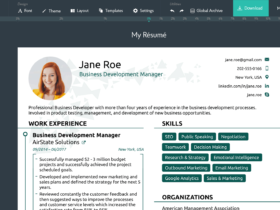If you have a computer, you have most likely encountered at least one encounter where your system failed to boot or your hard drive crashed. In such cases, you can lose almost everything you have saved on your computer system, especially if you don’t have backup procedures in place.
Situations like these are not something that the average user would think of. As most of them are oblivious to the kinds of disasters that can happen, even happen. Only the more experienced users are those who steer clear of this, and therefore, take measures to protect themselves from such events, when they happen.
For this reason, it is very important that you familiarize yourself with the various measures that you can take to protect your system.
Here is a list of the biggest mistakes the average computer user makes. Much of it may or may not be immediately apparent to you. Thus, knowing these things will put you in the best possible position, should something unexpected happen to your system.
Read also:
1. Do not use ransomware protection software
One of the mistakes that a large number of computer users make is the lack of some kind of ransomware protection on their system.
Ransomware is basically a type of malicious file that, once it gets into your system, will locate sensitive information on your computer and block it behind encryption. Hence, in order to access this information, you will have to pay the virus creator to decrypt the encryption that they put on your files.
This is undoubtedly one of the worst situations that can happen to your system, but it can be prevented, if you know how. The most effective thing that you can do is to use anti-virus software, which will prevent any ransomware from reaching your system. There are a number of tools you can use, some specialized anti-ransomware tools that you can search for, and also a feature built into Windows called Controlled Folder Access.
This built-in Windows feature is very adept at keeping your system safe, and works well with Microsoft Defender. It is recommended that you use both, but at least controlled access to the folder, to protect your most sensitive data from hackers and malicious files.
2. Never restart your system
Anytime your system appears to be running, programs may start to go very slowly, and there is no apparent reason for this, the first thing you should try is to restart the system. Restarting your system is one of the most effective ways to fix many big problems that are occurring on your system. Some of the things that you can fix on your system, with a simple restart include the following:
- Programs run slower than usual.
- Applications use a large amount of memory.
Internet connection problems.
3. Never back up your computer
Hard drive failure is one of the most disastrous things that can happen to your system that gets worse, if you don’t have a backup plan. To keep your data safe, all you need to do is either use cloud storage or purchase another hard drive, whether it’s internal or external. Alternatively, you can use a flash drive if you only intend to back up smaller documents.
When you have your backup system in place, it should perform regular backups for you, provided it has enough storage space to do so.
When it comes to using something like a flash drive or an external hard drive, you’ll need to connect them manually, in time, so that the backup can be carried. This could be once a week or once a month, ideally, you want to have as many backups as possible, but you don’t want to overdo it.
Of course, there’s nothing stopping your flash drive or external hard drive from failing. However, with cloud storage, this is reduced to a minimum. You can use the cloud to backup literally everything, and it works faster than other backup methods. Thinking of backing up your tablet or phone, cloud storage is something you might want to consider.
Just make sure you keep track of what is backed up, and have some understanding of how to recover this data, in case you need it.
4. Not updating your operating system
Developers are constantly releasing new updates to their software, and for good reason. These reasons may include, to fix bugs, add new features, correct known vulnerabilities, and to make those systems more secure. When you neglect to keep your OS up to date, you are leaving your system to be exploited. One of the best things that you can do for your computer system is to set Windows Updates to automatic mode
5. Continuous use of Disk Defragmenter
If you are using one of the latest Windows operating systems, you don’t need to think about defragmenting your hard drive, because your operating system is configured to do it automatically. You should only consider doing this manually, if your hard drive is unusually fragmented. And this should only be done on standard hard drives. Post-SSDs do not need to be defragmented, nor do they take advantage of the process in any way, as data is stored much differently on them.
If you simply press the power button, it will be triggered during the shutdown process. However, if you hold the power button down, it will perform what is called a hard shutdown. This will shut down your computer suddenly, closing any files and programs in the process. This is not a recommended way to shut down your system, as this can lead to data corruption, data loss and even hardware failure.
You might find some discussion on the net saying that there is nothing wrong with turning off your system this way. But the truth is, they are very wrong. You should never use a hard shutdown except in an emergency.






إترك رد